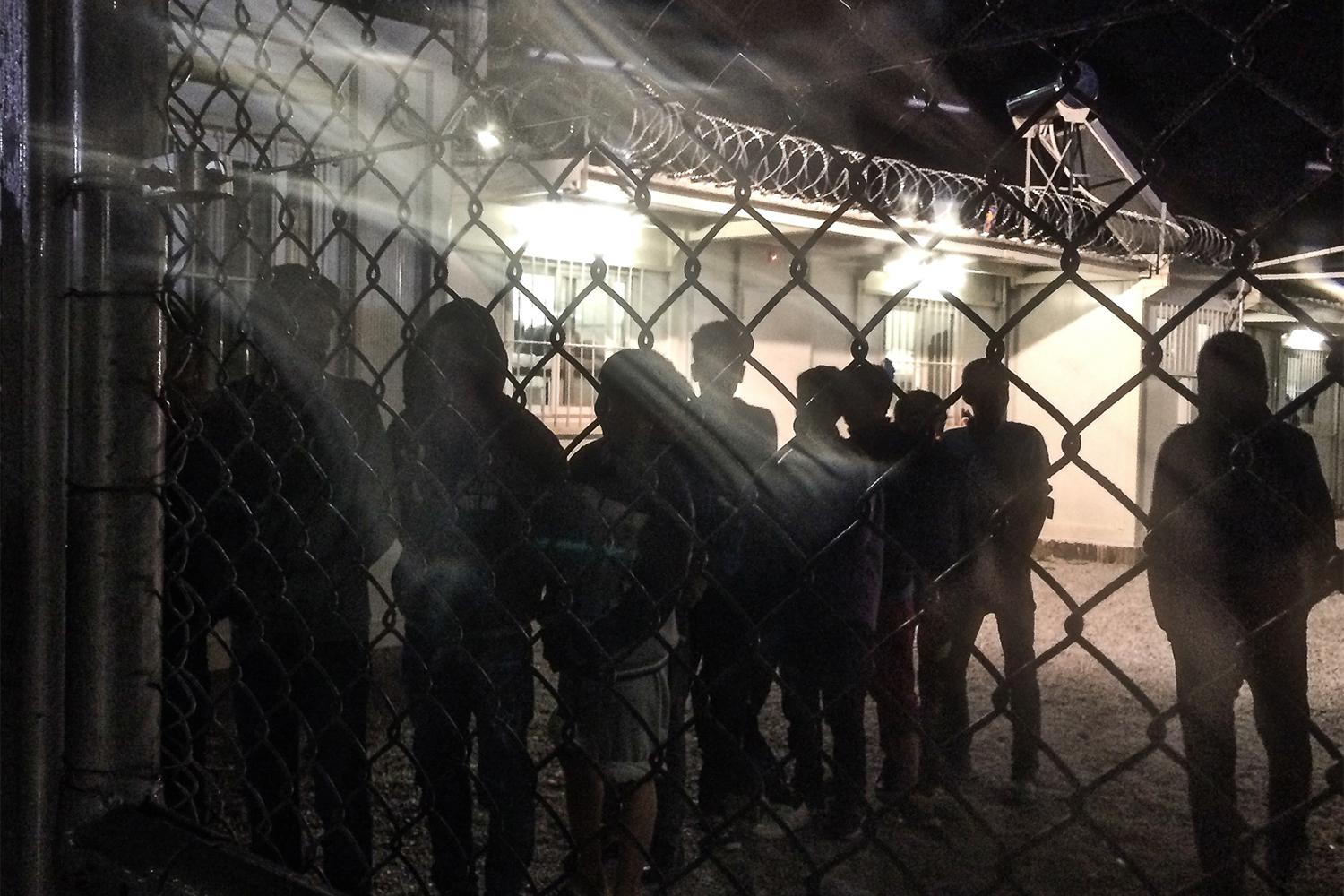Asylum-Seeking Kids Locked Up in Greece
| Publisher | Human Rights Watch |
| Publication Date | 23 January 2018 |
| Cite as | Human Rights Watch, Asylum-Seeking Kids Locked Up in Greece, 23 January 2018, available at: https://www.refworld.org/docid/5a8eb0cd9.html [accessed 19 May 2023] |
| Disclaimer | This is not a UNHCR publication. UNHCR is not responsible for, nor does it necessarily endorse, its content. Any views expressed are solely those of the author or publisher and do not necessarily reflect those of UNHCR, the United Nations or its Member States. |
Government Should Transfer Children On Their Own From Cells to Safe Housing
January 23, 2018 1:00AM EST
By Myrto Tilianaki
 Unaccompanied children line up for an evening meal at a detention facility run by the Greek police. © 2015 Kelly Lynn Lunde
Unaccompanied children line up for an evening meal at a detention facility run by the Greek police. © 2015 Kelly Lynn Lunde
Migrant and asylum-seeking children, traveling without parents or relatives far from their families and homes, are being locked up in police cells and detention centers in Greece.
Last August, in response to an open letter from Human Rights Watch, Greece's migration ministry pledged that by the end of 2017, all unaccompanied children will be placed in special shelters or safe zones.
Yet, as of late December, 54 unaccompanied children were detained in so-called "protective custody" in police station cells or in immigrant detention centers.
Our research, shared with Greece's migration ministry, found that these children in detention live in unsanitary conditions, often with unrelated adults, and can be subject to abuse and ill-treatment by police. Detention has a serious long-term impact on children, including harm to their development, anxiety, depression, post-traumatic stress disorder, and memory loss. To make things worse, kids detained in Greece – who may have suffered horrific experiences while escaping from war zones – are often unable to receive medical treatment, psychological counseling, or legal aid. Few even know the reasons for their detention or how long they will be behind bars.
The continuous arrivals of asylum seekers and migrants to Greece and the lack of space in adequate facilities – combined with other European Union countries' refusal to take in their share of these arrivals – are a serious challenge to Greece. But locking up children is not an acceptable response. As the United Nations Secretary-General confirmed in 2013, "Detention of migrant children constitutes a violation of child rights."
To fulfill its obligations to these vulnerable children, Greece should find space in open facilities for kids who are currently in custody. Greece should also be working to increase its shelter capacity, find alternatives to detention, and establish a functional and comprehensive foster family system, which would benefit Greek children as well.
Greece's EU partners also need to help. Other EU members should speed up family reunification for children with relatives in other EU countries, and should offer to relocate unaccompanied asylum-seeking children – even if they lack family ties.
Unaccompanied children in Greece should not have to spend another day locked up in filthy police cells.
Link to original story on HRW website

